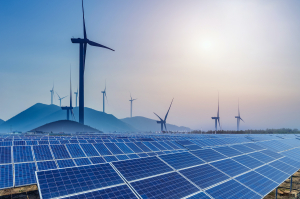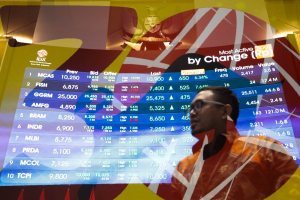PLN-Mitsui conflict on Paiton 3 divestment disrupts investment
A new chapter in the dispute between Mitsui & Co Ltd and State electricity company PT PLN regarding the certainty of the Paiton 3 divestment could set a precedent reflecting the high investment uncertainty in Indonesia.
As previously reported by Bisnis.com, the dispute escalated because Mitsui plans to resort to arbitration over PLN's decision, which is said to postpone and withhold approval for its planned divestment of Paiton 3 shares. As of the time of writing, PLN has not responded to the questions posed.
Meanwhile, Abra Talattov, Head of Research at the Center of Food, Energy, and Sustainable Development at the Institute for Development of Economics and Finance (Indef), believes that this issue should be resolved amicably.
"This is actually a common corporate action, and it seems to follow legal procedures in line with existing rules and agreements. Moreover, the plan has been in place for quite some time. However, it is now under scrutiny because there is unclear information regarding PLN's change in stance," Abra said as quoted byBisnis.com on Tuesday, February 27, 2024.
Mitsui has attempted to divest all of its shares in Paiton Energy amounting to 45.5 percent since mid-2021, specifically to RH International Singapore Corporation Pte Ltd (a subsidiary of the Thai-based RATCH Group) by 36.26 percent and to Medco Daya Energi Sentosa (a subsidiary of one of the existing shareholders of Paiton, Medco Daya Abadi Lestari) by 9.25 percent.
According to the Extension Sponsors Agreement signed by PLN, Paiton Energy, Mitsui, Nebras Power, and Medco Daya Abadi Lestari in mid-2010, the divestment plan is actually valid after the Commercial Operation Date. However, since Mitsui no longer holds more than 50 percent of the shares after the Commercial Operation Date following the divestment, the agreement emphasizes that the transfer will not take effect without prior written approval from PLN.
PLN has actually issued a formal approval letter as of June 26, 2023. PLN also requested several legal prerequisites, one of which is the Novation Agreement. However, by the end of 2023, everything changed because PLN had not yet signed the Novation Agreement provided, so Mitsui could not complete the transaction.
The reason given was that PLN stated it had revoked its previous approval and would no longer approve the delayed transfer of Mitsui's shares due to a clear instruction from the Indonesian government for PLN not to approve the transfer of Mitsui's shares unless the sole recipient of the transfer is an Indonesian local company.
Therefore, Mitsui defended itself by stating that none of the provisions in the Extension Sponsors Agreement allowed PLN to pressure Mitsui to sell its interest in Paiton to an Indonesian local company.
Abra agrees that the government does have the competence to conduct profiling on the credibility, competence, and capacity of a company that will do business related to national energy security. However, clarity of information should be a priority if the government and PLN have specific plans, thus considering changes in attitude towards the Paiton 3 divestment plan. Moreover, Paiton 3 is one of the important independent power plants (IPPs) in Indonesia.
Furthermore, Abra reminded that this case should not be a record that investment in the Indonesian electricity sector is considered less conducive due to numerous uncertainties, especially obstacles in reaching future exit strategy opportunities.
"Hopefully, it can be resolved amicably to present a friendly investment face, especially in the Indonesian electricity sector. Because the challenges in this sector are increasing. Moreover, to attract investors who will develop renewable energy," he said.
Once the divestment takes place, the Paiton Energy shares previously held by Medco will increase from 28.48 percent to 37.74 percent, while Nebras Power Qatar as the old shareholder will remain at 26 percent. The remaining shares will be held by the RATCH Group at 36.26 percent.
Paiton Energy, built in 1994, is still bound by a long-term power purchase agreement (PPA) until 2042, which is still 18 years from now if counted from this year.
Already have an account? Sign In
-
Start reading
Freemium
-
Monthly Subscription
30% OFF$26.03
$37.19/MonthCancel anytime
This offer is open to all new subscribers!
Subscribe now -
Yearly Subscription
33% OFF$228.13
$340.5/YearCancel anytime
This offer is open to all new subscribers!
Subscribe now






